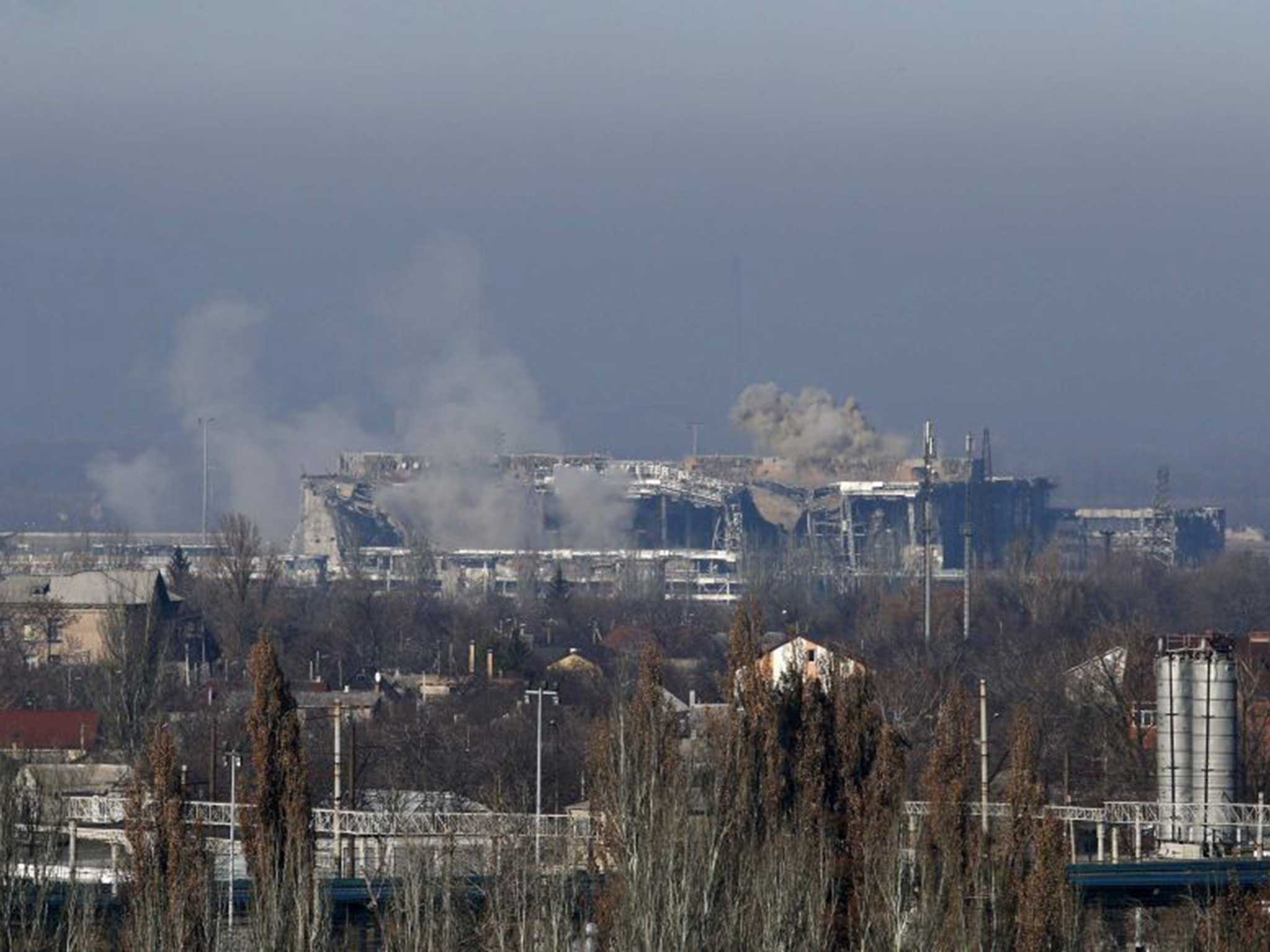Ukraine crisis: New shelling batters pro-Russian rebel city of Donetsk as a fragile ceasefire falters
Both Kiev government and pro-Russian leaders have accused each other of breaking 5 September ceasefire

Your support helps us to tell the story
From reproductive rights to climate change to Big Tech, The Independent is on the ground when the story is developing. Whether it's investigating the financials of Elon Musk's pro-Trump PAC or producing our latest documentary, 'The A Word', which shines a light on the American women fighting for reproductive rights, we know how important it is to parse out the facts from the messaging.
At such a critical moment in US history, we need reporters on the ground. Your donation allows us to keep sending journalists to speak to both sides of the story.
The Independent is trusted by Americans across the entire political spectrum. And unlike many other quality news outlets, we choose not to lock Americans out of our reporting and analysis with paywalls. We believe quality journalism should be available to everyone, paid for by those who can afford it.
Your support makes all the difference.New shelling battered the pro-Russian rebel city of Donetsk in eastern Ukraine overnight, shaking the fragile ceasefire.
The news comes amid accusations from Kiev that separatists are preparing to escalate the conflict in the east of the country by bringing in “Russian mercenaries”.
A Reuters correspondent, reporting from the former industrial hub, heard loud explosion from heavy artillery fire.
It was unclear who was shooting or what the intended target was. Artillery shelling occurs almost daily around the strategically important Donetsk airport, despite the ceasefire, and shelling around the city has intensified in the past week.
"Russian mercenaries are strengthening and reinforcing (rebel) forces near the front line," Ukrainian military spokesman Andriy Lysenko told a news briefing in Kiev.
He claims pro-Russian rebels have been reinforcing positions around the south-eastern port city of Mariupol, control of which would open up roads in southern Ukraine – which some western leaders allege Russian president Vladimir Putin hopes to seize.
Despite the daily infractions German Chancellor Angela Merkel has ruled out further economic sanctions, instead seeking to build upon the seemingly crumbling 5 September ceasefire, with both sides allege the other has broken.
The ceasefire was intended to end a conflict that has killed more than 4,000 people since the separatist movement rose up in the mostly Russian-speaking east against a western-looking government in Kiev.
Although there were localised daily infractions, the situation appeared to steady – with fatalities dropping - until 2 November when separatist leaders were elected in a ballot the west labelled illegitimate.
Since then, the conflict has slowly ratcheted back up with pro-Russian rebels and the government of Kiev in the centre of a chilling stand-off, closely observed by western governments and Moscow.
The latest reports of shelling will do nothing to calm the situation, which former Soviet president Mikhail Gorbachev alluded to in recent remarks on the 25th anniversary of the fall of the Berlin Wall.
Additional reporting by Reuters
Join our commenting forum
Join thought-provoking conversations, follow other Independent readers and see their replies
Comments